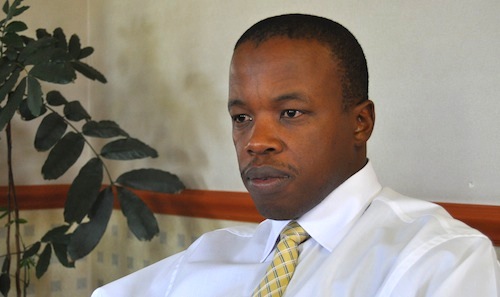
State-owned broadcasting signal distributor Sentech on Friday provided the first insights into its plans to have another go at building a national broadband network. Sentech outlined its plans to parliament’s portfolio committee on communications as part of its strategic plan for 2011 to 2014.
CEO Setumo Mohapi says the new plan is not meant to compete with private-sector players but rather to provide coverage to areas the private sector has missed.
Sentech wants to provide Internet access to schools, clinics and underserviced rural and municipal areas, and Mohapi has set a deadline of five years to get the network built. “It is certainly doable in three years,” he says.
The company is hoping the department of communications and national treasury will come to the party with additional funding for the plan, with Mohapi saying it needs more money to finance the project.
“There is a deficit on capital and operational funding for the national broadband project, but we believe that a renewed focus on our mandate and the benefits we can show will encourage the shareholder [government] to give us the funds,” he says.
Sentech already has an allocation of R500m for broadband, which was given to it in the 2007/2008 financial year. There’s now more than R580m in the kitty thanks to interest accrued.
However, news that Sentech is gearing up to roll out a new broadband network is likely to met with derision in many quarters after its first attempt at building a wireless broadband business failed hopelessly. The company pulled the plug on its MyWireless business in 2009 after demonstrating it was incapable of running a retail consumer-facing business.
Mohapi says he is aware of Sentech’s poor reputation in the telecommunications industry. Despite this, he says Sentech still has an important role to play in SA’s broadband market — as long as it’s not perceived to be in competition with the private sector.
He says as a government entity, drawing its mandate from the department of communications, Sentech does not have the same pressures as private-sector players to recover capital investment in infrastructure in rural areas.
“We will still make the project sustainable operationally,” he says. There will also be greater infrastructure available to private companies wanting to target higher-risk areas without them having to fork out for their own networks.
Mohapi says Sentech’s own research shows that connectivity to schools in SA is poor. In KwaZulu-Natal, 94% of schools do not have Internet access, from 84% four years ago, he says. In SA’s economic hub, Gauteng, only 59% of schools are connected to the Internet.
“These figures show that the deprivation of broadband access is increasing and, unless there is specific intervention, private companies will not work towards connecting the underserviced.”
Mohapi says Sentech also wants to connect clinics and Thusong (government computing centres) within the next five years. — Candice Jones, TechCentral
- Subscribe to our free daily newsletter
- Follow us on Twitter or on Facebook

